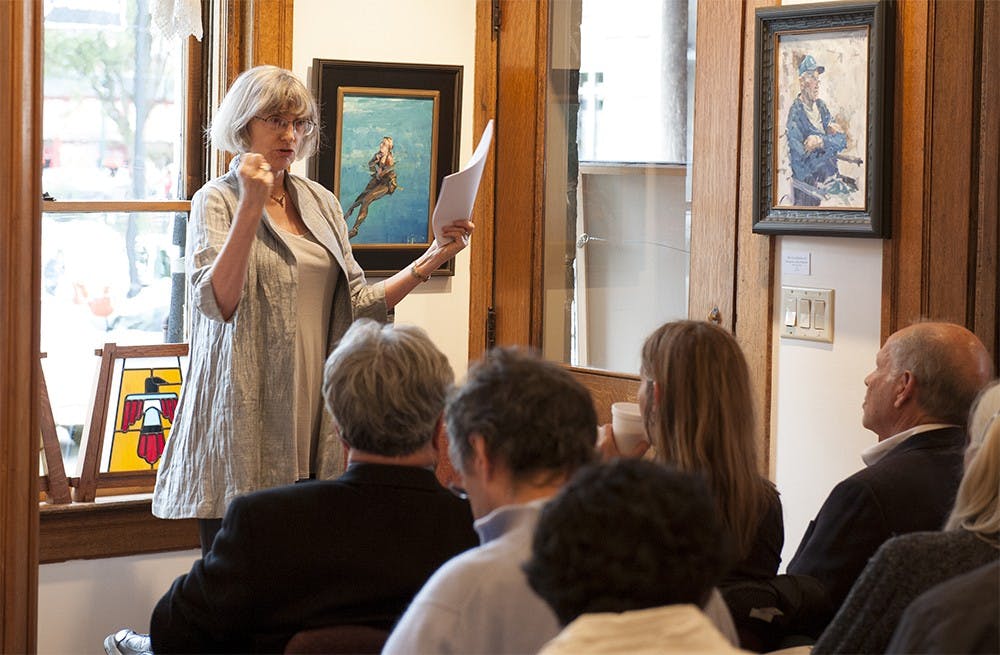Warren made sure the audience understood the flow of meter in the original pieces before they heard her translation by emphasizing a nearly erotic expansion and contraction as she read.
“I’d like you to hear in the Latin — there’s a foot in the middle of the line that goes long, short, short, long — it’s a real dance step,” Warren said. “These poems, for Sappho, were composed to be danced and sung to.”
Warren took the time to explain all of the poems, both translated and original, that she shared during her reading at the Venue Fine Art & Gifts Thursday night.
David Hertz, chair of the Department of Comparative Literature, which helps plan the event, introduced Warren to the group of students and community members that filled the gallery.
“In my opinion, she’s one of the prominent poets in the United States,” Hertz said. “In addition, Rosanna is one of the most distinguished people I know. She’s on all these boards, served as chancellor of the American Academy of Poets — before I say too much, I would just like to sit down and enjoy readings of poetry and translation.”
Warren made clear that the translation and her poems were not mutually exclusive.
“I don’t make an absolute distinction between translation and my own poems,” Warren said. “Writing comes out of some place — it comes out of older writing. There’s a deep kind of genetic process going on of how writing happens.”
Warren also read translated works of Patrizia Cavalli from their original Italian. Warren described Cavalli’s tone in one of the poems as mischievous.
“She really is not a good girl in many ways,” Warren said.
Warren read a collection of slightly scandalous poems, including some of the recently revealed works of poet Marcel Proust, which she said outlined some heavily sexual and homosexual imagery.
“If you’re going to be offended, cover your ears,” Warren said. “They’re very offensive. This is pornographic, doggerel — they’re not good poems, and they’re obscene.”
Warren read a few more works by other poets before transitioning into her original works. She read a few from a published collection, then she read a few from a manuscript that she is currently working on.
The subject matter of these poems ranged from childhood memories and eulogies of lost loved ones to somewhat political statements. One poem, “Graffiti,” from the new manuscript, takes its name from actual street art.
During the question and answer period, Dave Colman, curator of the Venue, asked whether Warren hears poems in her head before she writes them on paper. She said her process comes from many facets of creative expression.
“I started for many years trained as a painter — drawing is very much a part of my practice,” Warren said. “Drawing is kind of writing for me — or writing is kind of drawing — but I also hear.”
Hertz asked Warren as a concluding question about the importance of translation in her work.
“It’s my lifeblood,” Warren said. “It feels like blood transfusion — to get other rhythms, other shapes of poems in the psyche, other heart beatings. I like to treat English as a foreign language — I want to be estranged enough from my own language that I treat it with that hypersensitivity, that every nerve end is quivering in all this pain by the pulsation or semantic signaling.”






